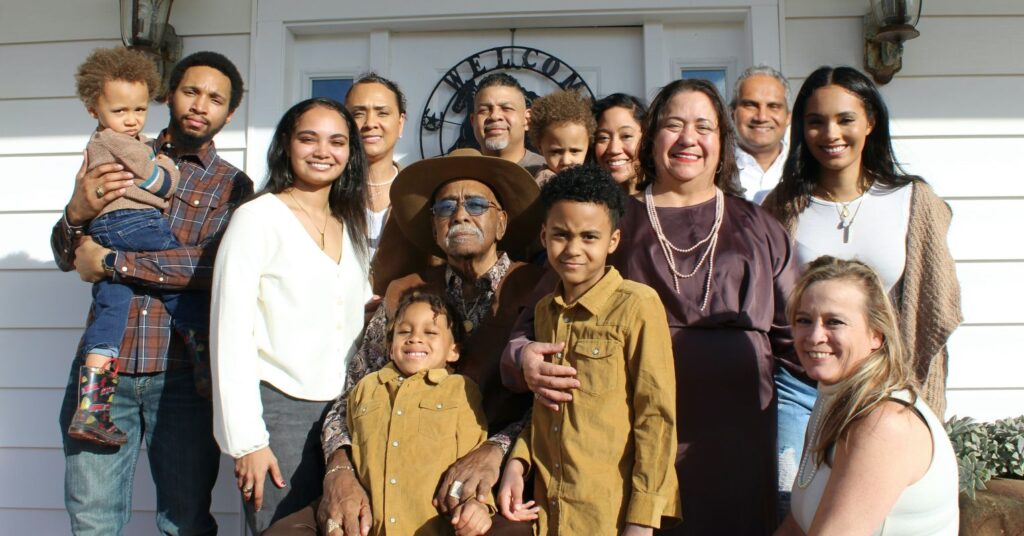I don’t remember my grandfather; he died in his 50s of a heart attack. I was a baby at the time. I didn’t know my grandmother for long either. I was 9 when she died at age 62 of a stroke. I was sad to have lost my grandparents so young.
Then, when I was 19, my uncle died of a heart attack at 44 years old. The premature deaths on one side of my family, all due to cardiovascular disease, terrified me. I was scared my mother would die, and I was scared that I would only live half of a lifetime. I went to the doctor and discovered my cholesterol was elevated. That frightened me even more.
The scientific literature provides plenty of evidence that genetics plays a role in our risk for cardiovascular disease. About 75 percent of people have polygenic markers linked to a higher-than-average risk of developing conditions like high cholesterol, hypertension, cardiovascular disease, or type 2 diabetes.1
The good news is that the scientific literature also shows that lifestyle habits such as regular exercise and a healthy diet can dramatically reduce risk for cardiovascular disease2 and cancer.3 In my 20s, shortly after my uncle’s death, I took up running to get in shape. I remember how my first run felt—my lungs burned and my legs ached. I kept reminding myself that I was literally running for my life.
Untimely deaths on my mother’s side of the family made my family’s health history obvious, but my father’s side of the family did not have untimely deaths. I was eager to know the health histories of my father’s siblings and parents so that I could piece together a full picture of my family’s health history. I discovered more cardiovascular risk factors on my father’s side, and this reaffirmed my commitment to a healthy lifestyle.
A recent global survey by the international healthcare company, Bupa, found that 14 percent of people have never spoken to their relatives about family health history.1 By not doing so, they are missing an opportunity to learn how to mitigate their genetically increased risk for disease. One major reason people avoid this conversation is the common misconception that having a genetic predisposition for a disease spells doom, and there’s nothing to be done about it. Over a third (35 percent) of adults believe this,1 but a great deal of evidence shows that preventive measures such as cancer screenings,4 regular checkups, healthy lifestyle habits, and more can reduce risk for disease and improve survival rates should a disease occur.2
Even if you aren’t keen on knowing your family health history, your doctor will want this information. Bupa’s recent survey found that 79 percent of health care professionals say that more lives could be saved if patients had better knowledge of their family history.1 Doctors use family health history to guide your care, including what to test for and which preventive measures are appropriate for you. If you haven’t gathered health histories from your parents and grandparents, doing so will give you knowledge, and that knowledge is power.
Having a conversation about family health history can be anxiety-provoking because you might find out that you may be at elevated risk for a scary disease. I deeply empathize with this, given the fear I felt after untimely deaths in my family. However, consider these four benefits to knowing your family’s health history:
1. Fear subsides when you take action. Studies show that people who are aware of their elevated risk for disease are more motivated to engage in healthy lifestyle practices.5 Before I knew my family health history, exercise seemed like a slog, but now it has taken on a new significance—it gives me a sense of control and peace of mind.
2. Knowing your family health history gives you a chance to do something about it. Share this information with your doctor and ask, “What can I do to reduce my risk?”
3. If your doctor knows your family health history, you will get better health care. Bupa’s research found that 68 percent of health care professionals said that understanding a patient’s family health history is critical to delivering personalized care.1
4. Family health history knowledge gives you the opportunity to help your children adopt healthy lifestyles. This knowledge can not only save your life—it can also save theirs.
Tips for starting the conversation:
1. Grab a notepad and give your parents and grandparents a call. Tell them you are creating a family health history document to share with the whole family, and you’d love to know about any health conditions they’ve had and if they know of health issues affecting other members of the family.
2. If such a direct approach seems intimidating, casually steer your next conversation toward the subject of health. Perhaps you could start by sharing your own health issues.
3. If one family member seems unapproachable on the subject of health, consider asking others, including aunts, uncles, siblings, and cousins. The more family members you ask, the clearer the picture of your family’s health risks you can piece together.
Be sure to document the health conditions you discover, which family member had them, the age of diagnosis, and treatments that worked and did not work. Finally, be sure to bring this information to your next doctor visit. They will be glad you did.
I am 52 years old now, and I’m happy to report that I am still a runner. I’m even happier to report that my cholesterol is in the healthy range. And my happiest report is that my mother, who routinely clocks 10K steps per day, just turned 80.

